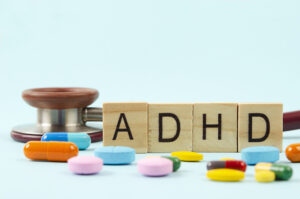The medical field faces problems with accessing various medications, including an ADHD treatment shortage. As a psychiatrist with over two decades of experience in New York City, I understand the challenges and frustrations this shortage causes for both patients and providers. I will outline the potential causes of the shortage and offer five strategies to address the issue effectively.
In this article, I will draw on my practice experience and research to offer five practical strategies for navigating the shortage and securing your prescribed ADHD treatments.
-
Explore Pharmacy Options
One effective strategy is to seek out pharmacies within large chain stores or grocery stores, such as Target or significant grocery chains. These pharmacies often have different supply chains and stock levels than smaller, independent ones. They may also have access to larger quantities of medication or other brands that can fulfill your prescription needs. Checking with these locations regularly can increase the likelihood of finding the medication you need.
-
Ask About Alternative Dosages
If a specific medication or dosage is unavailable, ask the pharmacist if they have a different size tablet. For example, if you are prescribed Ritalin Long Acting 40 mg but it’s out of stock, the pharmacist might have Ritalin Immediate Release.
However, it’s crucial to remember if the pharmacist offers a different dosage or formulation, you must first consult with your psychiatrist. Your psychiatrist must approve any changes, and a new prescription is required. The pharmacist cannot simply substitute the medication or dosage without proper authorization from the psychiatrist.
- Consider Medication Alternatives with Caution
ADHD medications fall into two main classes: methylphenidate and amphetamines. Methylphenidates include medications like Focalin and Concerta, while amphetamines include Adderall, Dexedrine, and Vyvanse. Although it is generally advised not to switch medicines within the same class, such as Adderall and Vyvanse, there may be certain cases where the benefits outweigh the risks.
Your psychiatrist will evaluate whether an alternative medication is appropriate and may provide a new prescription if needed. Doses vary between medications, and your doctor must meticulously manage changes to avoid adverse effects and ensure efficacy.
-
Review Non-Pharmaceutical Interventions
While navigating the medication shortage, your provider may consider incorporating non-pharmaceutical interventions into your treatment plan.
Cognitive-behavioral therapy (CBT) and other therapeutic approaches can provide valuable support in managing ADHD symptoms. These therapies can complement or serve as alternatives when medication is unavailable. Engaging in structured routines, using organizational tools, and employing behavioral strategies can help mitigate some ADHD-related challenges.
-
Communicate with Your Healthcare Provider
Maintaining open communication with your psychiatrist or healthcare provider is essential during this period. If you encounter difficulties obtaining your medication, inform your provider immediately. They can offer guidance on adjusting your treatment plan, finding alternative medications, or providing additional support. Your provider’s expertise and oversight are crucial in ensuring that any changes to your treatment plan are made safely and effectively.
While the ADHD medication shortage poses significant challenges, these strategies can help. By exploring pharmacy options, considering alternative dosages with proper authorization, cautiously evaluating medication changes, integrating non-pharmaceutical interventions, and maintaining open communication with your healthcare provider, you can navigate this shortage with greater confidence and continuity of care.
**The material here is not intended to replace proper medical supervision or advice. All decisions which may impact your health should be discussed with your physician.

Leave a Reply